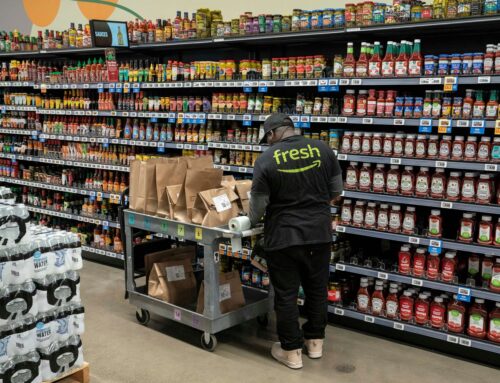Trump Wants To Delete State Medical Marijuana Protections From Budget While Continuing To
June 2, 2025
President Donald Trump is again proposing to remove existing protections for states that have legalized medical marijuana, while maintaining a ban that’s prevented Washington, D.C. from enacting a system of regulated adult-use cannabis sales.
As part of his budget request for the 2026 fiscal year sent to Congress on Friday, Trump is seeking to delete a longstanding rider that’s barred the Justice Department from using its funds to interfere in the implementation of state-level medical marijuana laws.
This is Trump’s first budget request of his second term, but during his first term he similarly called for its deletion each year of his presidency.
President Joe Biden, on the other hand, consistently proposed to continue the medical cannabis provision intact in his budget requests—though President Barack Obama, like Trump, had sought to delete it.
Congress has the final say on appropriations legislation language, however, and has not followed through on any president’s request to delete the medical marijuana protection since it was first enacted into law in 2014—though lawmakers have also declined to expand the protections to cover state recreational marijuana programs.
After signing prior appropriations bills into law that included the medical cannabis protection in contravention of his request to delete it, Trump on three occasions issued statements that specifically said his administration “will treat this provision consistent with the President’s constitutional responsibility to faithfully execute the laws of the United States”— implying he was reserving his right to ignore the rider.
The latest action in Trump’s new budget request will likely come as a disappointment to advocates and stakeholders, who have held out hope that the president would take a new direction on marijuana policy reform—especially after he endorsed rescheduling, industry banking access and a Florida cannabis legalization ballot initiative that ultimately fell short.
Adding to the disappointment, Trump again called for the continuation of a separate rider that has blocks D.C. from using local taxpayer dollars to legalize and regulate recreational cannabis sales in the nation’s capital.
Rep. Eleanor Holmes Norton (D-DC) has been vocal in her criticism of the provision, championed by Rep. Andy Harris (R-MD), and she said last month that she will again push her colleagues to join her in an effort to remove the language.
“As Congress works on the fiscal year 2026 appropriation bill, I will continue to fight to remove this rider,” she said, while referencing a recent statement from the White House that called the District’s move to enact local marijuana reform an example of a “failed” policy that “opened the door to disorder.”
The president’s latest budget request additionally proposes to keep a section that prohibits the use of funds for “any activity that promotes the legalization of any drug or other substance included in schedule I of the schedules of controlled substances established under section 202 of the Controlled Substances Act except for normal and recognized executive-congressional communications.” That would include marijuana.
While the medical cannabis protections would be omitted under Trump’s plan, it proposes to continue to provide protections against interference in state hemp programs. During his first term, Trump legalized hemp containing no more than 0.3 percent THC by dry weight under the 2018 Farm Bill.
Meanwhile last month, a Senate committee advanced the confirmation of Terrance Cole to become the administrator of the Drug Enforcement Administration (DEA) amid the ongoing review of a marijuana rescheduling proposal that he’s refused to commit to enacting.
Cole—who has previously voiced concerns about the dangers of marijuana and linked its use to higher suicide risk among youth—said he would “give the matter careful consideration after consulting with appropriate personnel within the Drug Enforcement Administration, familiarizing myself with the current status of the regulatory process, and reviewing all relevant information.”
However, during an in-person hearing before the Senate Judiciary Committee in April, he said examining the rescheduling proposal will be “one of my first priorities” if he was confirmed for the role, saying it’s “time to move forward” on the stalled process—but again without clarifying what end result he would like to see.
Separately in April, an activist who received a pardon for a marijuana-related conviction during Trump’s first term paid a visit to the White House, discussing future clemency options with the recently appointed “pardon czar.”
A marijuana industry-backed political action committee (PAC) has also released a series of ads over recent months that have attacked Biden’s cannabis policy record as well as the nation of Canada, promoting sometimes misleading claims about the last administration while making the case that Trump can deliver on reform.
Its latest ad accused former President Joe Biden and his DEA of waging a “deep state war” against medical cannabis patients—but without mentioning that the former president himself initiated the rescheduling process that marijuana companies want to see completed under Trump.
Photo courtesy of Wikimedia.
Search
RECENT PRESS RELEASES
Related Post


